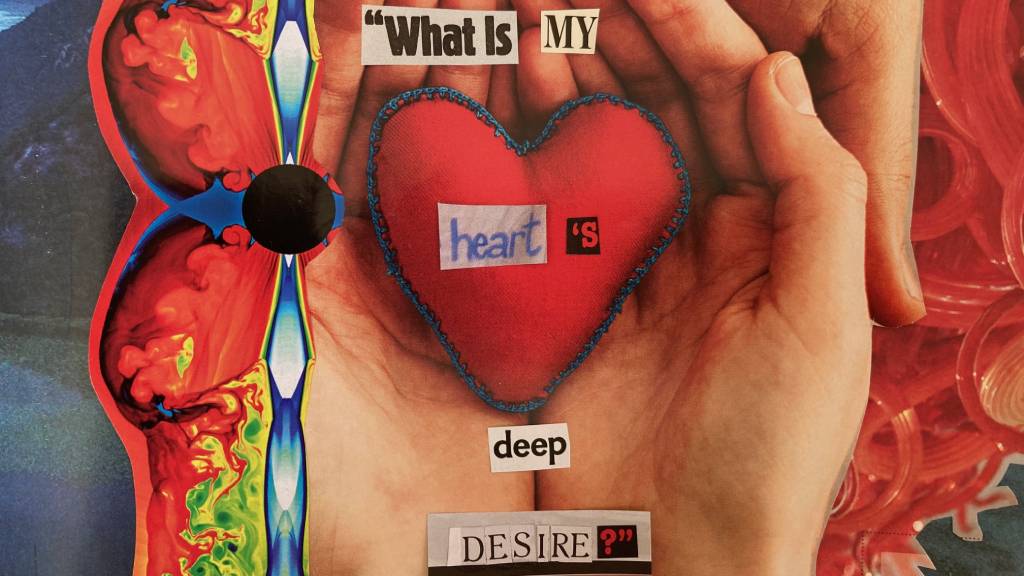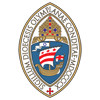Lesson Video and Resources Below…
“Above all, trust in the slow work of God/We are quite naturally impatient in everything to reach the end without delay/We should like to skip the intermediate stages/We are impatient of being on the way to something unknown, something new/And yet it is the law of all progress/that it is made by passing through some stages of instability—/and that it may take a very long time.”
Pierre Teilhard de Chardin, SJ
Art of Discernment: Coaching

Our last session of Art of Discernment gave participants an opportunity to integrate both discernment tools from this series, Topography and Voices & Visualization, in preparation for the new practice for the evening: discernment coaching.
The Ignatian discernment tools guided the opening, centering exercise, Simple Examen and Imagination in Prayer. The evening provided a review of key points for new and returning participants: a general orientation and basic definition to spiritual discernment, 4 prerequisites for discernment, and the overall purpose for all of us, “Why discern?” in the context of the Christian faith tradition.
After reviewing the tools used in sessions one and two, time was provided for all participants to prepare a discernment to share with others. In small groups of three, each was given a turn to practice being either a presenter, listener, or observer in the discernment coaching process. Three rounds of the small group experience of discernment coaching offered all a chance to practice each role.
The discernment coaching practice built on a tool that has been used throughout the winter and spring series of Contemplative Creativity, Listening and Speaking In-Depth. This helped to provide a safe space for all to participate, allowing each to speak from the heart and avoid the advice or problem-solving offered by others. Participants offered a loving presence and respectful witness to the unfolding process of each other, allowing a sacred silence to emerge whenever possible.
Closing the evening was an opportunity for a large group conversation, including questions and comments by participants, the skills acquired and suggestions offered for next time. We celebrated the close of a series with gratitudes shared by many and announcements of summertime offerings, art and faith retreats in our region.
Additional Resources:
Grunewald Guild Summer Programs
Ignatian Spirituality Center Summer Retreat
Ignatian Spirituality Center, Seek and Find Spiritual Direction Services
Catch-up or Re-visit:
Self-Preparation:
Choose a question, decision, or situation to re-visit from earlier in this series or identify a new one to bring for our evening. (Do not worry about finding the perfect one; this is an experiment, not a final decision. Also, do not be afraid to choose one that seems particularly close to your heart.)
Examples might be: How will I spend my upcoming vacation time? How will I best live this work or personal relationship? How am I being called to care for my ill friend or family member? What is my next chapter asking of me?
Method: Discernment Coaching
In this third evening together, we will deepen our discernment methods by guiding one another in a discernment coaching process. After a brief review of the tools used in this series (topography and voices/visualization), participants will take some quiet, individual time to prepare their personal question, discernment, or situation. Guidelines for discernment coaching will be taught as a preparation for all participants to practice in small groups of two and three.
Each participant will be offered the opportunity to practice in the roles of being helper, being helped, and/or being an observer to the discernment coaching process that we will use.
We will create a safe place for all. Trust that you and your hopes and fears will be held. All participants are encouraged to be open and free with our discernment process.
Materials:
Simple, easy, and inexpensive, meant to encourage freedom and use, located in or around home or found at a local drug store or craft shop. Please do not feel pressured to go to any significant effort or expense to prepare for this program.
- Sketchbook or plain paper, any size
- Notebook or lined paper
- Writing pen
Optional: any creative expression materials found or used at home: colored pencils or paint, collage, or mandala-making materials.
Session Three Video:
Catch up with session one resources and video here.
Catch up with session two resources and video here.

Our Guide:
Carla Orlando, M.Ed, is an educator and spiritual director who teaches discernment, reflective writing, and contemplative prayer at Seattle Pacific University and at the Grunewald Guild for art and spirituality. Carla’s ministry includes Spiritual Direction Services at the Ignatian Spirituality Center, the Spiritual Exercises of Everyday Life retreat, the Catechesis of the Good Shepherd, and the Jesuit Restorative Justice Initiative. Carla’s somatic method, training, and supervision with PRH (Personnalite et Relations Humaines) International School of Adult Development is integral to her personal approach and guides her work with university students, faculty, organizational professionals, and people of faith.
Questions? Email Sylvia Sepulveda.
Contemplative Creativity meets the the second Wednesday of each month at 6pm PT, via Zoom.
